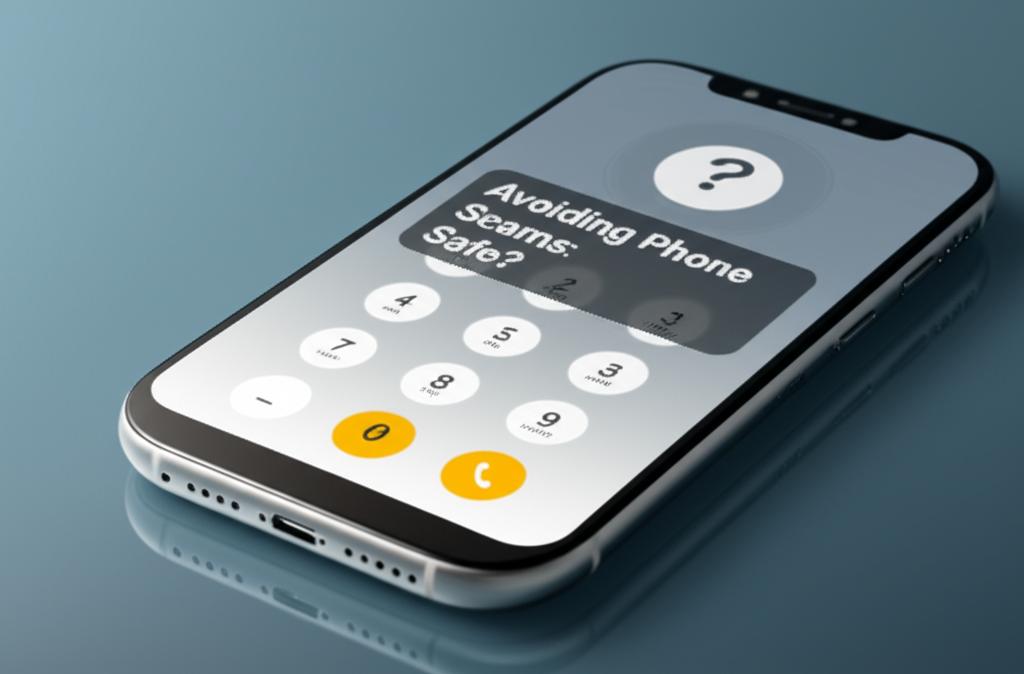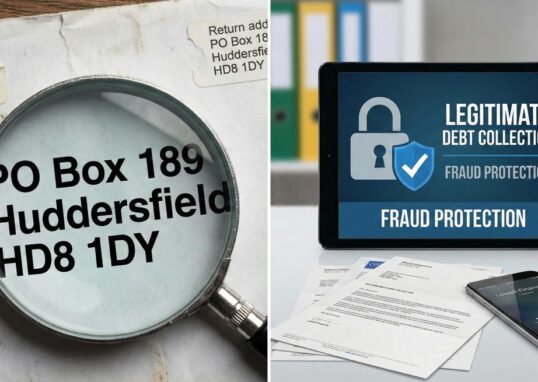
In today’s world, staying connected is more important than ever, but it also opens doors to potential risks, especially from phone scams. With scammers constantly evolving their tactics, it’s crucial to be vigilant and informed. One number that has been raising questions is 03335565564. Is it a legitimate business, or is it a potential scam? This article aims to provide a comprehensive overview of phone scams, how to identify them, and specifically address the safety of the 03335565564 number. We’ll equip you with the knowledge and tools to protect yourself and your loved ones from falling victim to these fraudulent schemes. The goal is to help you navigate the complexities of modern communication safely and confidently.
The rise of sophisticated technology has made it easier for scammers to mask their true identities and intentions. They can mimic legitimate organizations, making it increasingly difficult to distinguish between genuine calls and fraudulent ones. Understanding the red flags and knowing how to verify the authenticity of a call is essential in safeguarding your personal and financial information. By staying informed and adopting a cautious approach, you can significantly reduce your risk of becoming a victim of phone scams. This article will provide practical advice and actionable steps to help you stay one step ahead of the scammers and protect your hard-earned money.
Understanding the Landscape of Phone Scams in the UK
Phone scams have become increasingly prevalent in the UK, causing significant financial and emotional distress to countless individuals. These scams range from simple attempts to extract personal information to sophisticated schemes that can drain bank accounts. According to recent reports, millions of pounds are lost each year to phone scams, highlighting the urgent need for increased awareness and preventative measures. Scammers often target vulnerable individuals, such as the elderly or those with limited technological knowledge, making it even more critical to protect these at-risk groups. The impact of these scams extends beyond financial losses, often leading to feelings of shame, anxiety, and a loss of trust in others.
The tactics used by scammers are constantly evolving, making it challenging to keep up with the latest threats. They often impersonate well-known organizations, such as banks, government agencies, or utility companies, to gain the trust of their victims. They may use scare tactics, such as threatening legal action or claiming that your account has been compromised, to pressure you into providing sensitive information. The use of spoofing technology allows them to disguise their true phone numbers, making it appear as though the call is coming from a legitimate source. Understanding these tactics is the first step in protecting yourself from falling victim to these scams. You can also find some useful information about 0333 numbers which are often used by businesses across the UK.
What is an 0333 Number?
0333 numbers are non-geographic numbers used across the UK. Unlike 0800 numbers, which are free for the caller, 0333 numbers are charged at the same rate as standard local or national calls. This means they are typically included in mobile and landline call packages, making them a cost-effective option for both businesses and callers. Many organizations use 0333 numbers as a single point of contact for customers nationwide, providing a consistent and professional image. These numbers are regulated by Ofcom, the UK’s communications regulator, ensuring that they are used responsibly and ethically.
The popularity of 0333 numbers has grown in recent years due to their affordability and accessibility. They offer a convenient way for customers to contact businesses without incurring high call charges. However, the widespread use of 0333 numbers also means that they can be exploited by scammers. It’s important to remember that just because a call comes from an 0333 number, it doesn’t automatically mean it’s legitimate. Always exercise caution and verify the identity of the caller before providing any personal or financial information. Being aware of how these numbers are typically used can help you differentiate between legitimate business calls and potential scam attempts.
Is 03335565564 Safe? Investigating the Number
The question of whether 03335565564 is safe requires a thorough investigation. While 0333 numbers are generally used by legitimate businesses, it’s essential to determine the specific entity behind this particular number. One approach is to search online for any reports or complaints associated with the number. Websites and forums dedicated to identifying scam numbers often contain valuable information and user reviews. Another method is to contact Ofcom or other relevant authorities to inquire about the registered owner of the number. By gathering as much information as possible, you can make a more informed decision about whether to trust calls from 03335565564.
If you receive a call from 03335565564, it’s crucial to remain vigilant and avoid providing any personal or financial information. Ask the caller for their name, the name of the organization they represent, and the purpose of their call. If anything seems suspicious or if you feel pressured to provide information, politely decline and end the call. You can then independently verify the legitimacy of the organization by contacting them directly through their official website or phone number. Remember, legitimate organizations will never pressure you to provide sensitive information over the phone. It is always better to be safe than sorry, especially when it comes to protecting your personal and financial data.
Common Phone Scam Tactics in the UK
Impersonation Scams
Impersonation scams involve scammers pretending to be representatives of well-known organizations, such as banks, government agencies, or utility companies. They may use sophisticated techniques to mimic the appearance of legitimate communications, including spoofing phone numbers and creating fake websites. The goal is to trick you into providing personal or financial information, such as your bank account details, National Insurance number, or credit card information. These scams often rely on creating a sense of urgency or fear, pressuring you to act quickly without thinking critically. According to recent statistics, impersonation scams are among the most common and successful types of phone scams in the UK, causing significant financial losses to individuals and businesses.
To protect yourself from impersonation scams, always verify the identity of the caller before providing any information. If you receive a call from someone claiming to be from your bank, hang up and call them back using the official number listed on your bank statement or website. Similarly, if you receive a call from someone claiming to be from a government agency, such as HMRC, verify their identity by contacting the agency directly through their official channels. Never trust caller ID alone, as scammers can easily spoof phone numbers to make it appear as though the call is coming from a legitimate source. Staying vigilant and taking the time to verify the caller’s identity can significantly reduce your risk of falling victim to these scams. It is also important to know how to find the birth certificate reference number in the UK.
Investment Scams
Investment scams involve scammers offering lucrative investment opportunities that are often too good to be true. They may promise high returns with little or no risk, enticing you to invest your money in fraudulent schemes. These scams often target individuals who are looking to grow their savings or secure their financial future. Scammers may use high-pressure sales tactics and sophisticated marketing materials to convince you to invest. They may also create a sense of exclusivity, claiming that the opportunity is only available for a limited time or to a select group of investors. In reality, these investments are often Ponzi schemes or other fraudulent ventures designed to steal your money.
To protect yourself from investment scams, always do your research before investing in any opportunity. Verify the legitimacy of the investment company and the individuals involved by checking their credentials with the Financial Conduct Authority (FCA). Be wary of unsolicited investment offers, especially those that promise high returns with little or no risk. Never invest money that you cannot afford to lose, and always seek independent financial advice before making any investment decisions. Remember, if an investment opportunity sounds too good to be true, it probably is. Staying informed and exercising caution can help you avoid falling victim to these costly scams. You can also protect your business by ensuring you have the best beauty salon insurance in the UK.
Tech Support Scams
Tech support scams involve scammers posing as technical support representatives from well-known companies, such as Microsoft or Apple. They may contact you via phone, email, or pop-up messages, claiming that your computer has been infected with a virus or that there is a security vulnerability. They may then offer to fix the problem for a fee, often gaining remote access to your computer in the process. Once they have access, they may install malware, steal your personal information, or demand payment for unnecessary services. These scams often target individuals who are not tech-savvy or who are easily intimidated by technical jargon.
To protect yourself from tech support scams, never give remote access to your computer to anyone who contacts you unsolicited. If you receive a call or message from someone claiming to be from a tech support company, hang up or close the message and contact the company directly through their official website or phone number. Be wary of pop-up messages that claim your computer is infected with a virus, as these are often used to trick you into downloading malware. Always keep your antivirus software up to date and run regular scans to protect your computer from threats. Remember, legitimate tech support companies will never contact you unsolicited or pressure you to give them remote access to your computer. Remaining cautious and proactive can help you avoid falling victim to these scams.
How to Identify a Phone Scam
- Unsolicited Calls: Be wary of calls you didn’t expect, especially if they ask for personal information.
- Pressure Tactics: Scammers often create a sense of urgency, pressuring you to act immediately.
- Requests for Personal Information: Never give out sensitive information like bank details or passwords over the phone unless you initiated the call.
- Suspicious Payment Methods: Be cautious if asked to pay via unusual methods like gift cards or wire transfers.
- Poor Grammar and Spelling: Scam communications often contain grammatical errors and typos.
Protecting Yourself from Phone Scams
- Be Suspicious: Always question unsolicited calls and verify the caller’s identity.
- Don’t Share Information: Never give out personal or financial information over the phone unless you initiated the call and trust the recipient.
- Use Caller ID: Be aware that caller ID can be spoofed, so don’t rely on it solely.
- Register with the Telephone Preference Service (TPS): This free service can reduce the number of unsolicited marketing calls you receive.
- Report Scams: Report any suspected scams to Action Fraud, the UK’s national fraud and cybercrime reporting centre.
- Stay Informed: Keep up-to-date with the latest scam tactics and warnings.
What to Do If You Suspect a Scam
If you suspect that you have been targeted by a phone scam, it’s crucial to take immediate action to minimize the damage and prevent further losses. First, end the call and avoid providing any further information to the scammer. If you have already provided personal or financial information, contact your bank or financial institution immediately to report the incident and request a freeze on your accounts. Change your passwords for all online accounts, including email, social media, and banking accounts. File a report with Action Fraud, providing as much detail as possible about the scam, including the phone number used, the name of the organization impersonated, and the information requested. You can also report the scam to the Information Commissioner’s Office (ICO) if you believe your personal data has been compromised.
In addition to reporting the scam to the authorities, it’s also important to warn your friends, family, and colleagues about the scam to prevent them from becoming victims. Share your experience on social media and online forums to raise awareness and help others recognize the warning signs. If you are feeling distressed or overwhelmed by the experience, seek support from a trusted friend, family member, or mental health professional. Remember, you are not alone, and there are resources available to help you cope with the emotional and financial impact of being targeted by a phone scam. By taking swift and decisive action, you can minimize the damage and help protect yourself and others from future scams.
Conclusion
In conclusion, while 0333 numbers are generally used by legitimate businesses, it’s crucial to exercise caution when receiving calls from unfamiliar numbers, including 03335565564. Phone scams are a pervasive threat in the UK, and scammers are constantly evolving their tactics to deceive unsuspecting individuals. By staying informed, being vigilant, and following the tips outlined in this article, you can significantly reduce your risk of falling victim to these fraudulent schemes. Remember, legitimate organizations will never pressure you to provide sensitive information over the phone, and it’s always better to be safe than sorry. Protect yourself and your loved ones by staying informed and taking proactive steps to safeguard your personal and financial information. It is also important to have a reliable handyman in Leeds for your home maintenance needs.
The fight against phone scams requires a collective effort from individuals, businesses, and government agencies. By reporting scams to the authorities and sharing information with others, we can help raise awareness and prevent future victims. Stay vigilant, stay informed, and stay safe. The more we know, the better equipped we are to protect ourselves and our communities from the ever-evolving threat of phone scams. Let’s work together to create a safer and more secure environment for everyone.






